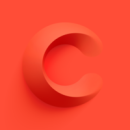Nancy Grace Roman, known as the mother of the Hubble Space Telescope, was the first chief of astronomy at NASA. Born in 1925, her path to being a successful woman in tech wasn’t an easy one. Even though she loved science, math and astronomy from the time she was a girl, Roman was dissuaded from making them her life's work at almost every turn.
“I was told by many people that a woman could not be an astronomer,” she said. “I’m glad I ignored them.”
Women with an interest in STEM may have an easier time breaking into the tech industry today than Nancy Grace Roman did, but they continue to be dissuaded, underpaid and uninvited. Although they make up nearly half of the U.S. workforce, women only fill 27% of STEM jobs. Issues with pay equity, recruitment and networking compound the problem, but those are systemic issues resulting in underrepresentation. Plenty of women have a deep skill, passion and interest in technology.
Some of the women working in tech today knew from an early age that science, math or engineering was their passion. Others found their way there via circuitous routes. Built In San Francisco sat down with five of these successful women in tech to learn about the paths that led them to become part of the 27%. Their stories, just like Nancy Grace Roman’s, are rich and compelling.
Cruise is building self-driving vehicles to safely connect people with the places, things and experiences they care about.
Briefly, tell us a bit about your career journey thus far and what you do at your company.
Prior to joining the AV industry, I mostly worked in hardware. I studied materials science and engineering at Stanford. During my master’s program, I worked at a startup focused on creating new alloys of stainless steel.
After a few years of working in the lab, I moved to Apple, where I was a hardware reliability engineer working on the next generation of Macbooks. I loved thinking about how users would interact with our products and creating tests to simulate everyday use so that we could have a long-lasting and sturdy product.
Eventually, I made my way to Cruise, enticed by the opportunity to work on the cutting edge of technology with a mission that I am deeply passionate about: to safely connect people to the places, things and experiences that they care about.
Here, I lead a group of systems engineers whose role is to decompose the issues we see on the road and in simulation so that the rest of the company can identify and prioritize the next problems to tackle.
How did you originally discover your passion for technology? How did you know you wanted to pursue a career in tech?
Because my mother worked as a civil engineer, I naturally aspired to follow in her footsteps. During my time in school, I found great satisfaction in activities that involved problem-solving, mathematics and critical thinking, which fueled my interest in engineering.
My primary attraction to technology stemmed from the chance to utilize my skill sets in support of a cause I deeply care about: addressing climate change. I’m proud to work at a company that uses an all-electric fleet while also tackling a really interesting technical challenge.
My primary attraction to technology stemmed from the chance to utilize my skill sets in support of a cause I deeply care about: addressing climate change.”
What advice would you give to other women discovering they have an interest in tech and are considering pursuing a career?
As cliche as it sounds, don’t be afraid to network. Some of my mentees in college often tell me they are too scared to go up to people in the industry and ask them questions, or they feel guilty taking time out of someone’s busy schedule as they have nothing to offer them in return for their advice.
What they don’t realize is that more often than not, many of us love to talk to people who are at the beginning of their careers. We were in your shoes at one point, and remember times when people helped us along the way. Networking is how I got many of my positions — you never know where it may lead.
Canva is a free, online tool designed to empower users to create social media posts, presentations, posters, videos, logos and more.
Briefly, tell us a bit about your career journey thus far and what you do at your company.
My major in college was global business with a minor in advertising. I worked at a few media agencies and found that I loved working with brands whose values aligned with my own.
When I was searching for a role in-house in 2020-2021, I found one at Canva that was a perfect fit for my background, experience, passion and values.
My role here at Canva is the brand media lead of the Americas, which means that I look after the media campaigns we run in support of our brand awareness and consideration goals across North and South America. These campaigns typically include some combination of TV, streaming, digital, social, outdoor and audio advertising.
How did you originally discover your passion for technology? How did you know you wanted to pursue a career in tech?
Technology exists to make our lives easier, and who doesn’t love that?
Not to sound like a dinosaur, but when I went from researching homework assignments and reports in encyclopedias and libraries to a simple internet search, my life was forever changed. I love how technology can simplify so many different elements of our lives, from providing directions on demand to connecting communities and making impactful presentations at work.
Not to sound like a dinosaur, but when I went from researching homework assignments and reports in encyclopedias and libraries to a simple internet search, my life was forever changed.”
I knew I wanted to pursue a career in tech because it inspires me. There is so much innovation in tech and I'm excited and inspired by the brilliant people that find ways to simplify and make our lives easier each day.
What advice would you give to other women discovering they have an interest in tech and are considering pursuing a career?
Try to live your life so that you have no regrets. When I make a big decision, I try to identify what would be the bigger regret: doing it or not doing it.
When I was graduating from college, my friend started his own lifeguarding business at the beach. I'd lifeguarded at a pool for years and always wanted to be a beach lifeguard.
I was anxious to start my career but also knew that I probably wouldn't take a break from my future career to spend a summer lifeguarding, so I went for it. That lifeguarding job was how I met someone who got me an interview for my first job at an agency and ultimately started me on my media career. Go with your gut.
Stay true to yourself, your principles and your values. I led my job search looking for a values-based company and found my unicorn opportunity at Canva. I led with values but ultimately got everything I ever dreamed of — a role that fits my experience and strengths at a rapidly growing tech company that aligns with my values, working alongside incredible people who keep me inspired and excited to come to work every day.
And finally, be your biggest cheerleader. Ultimately, your career is driven by one person: yourself.
Companies use Finch’s API to unify their disparate HR platforms, making it easier to update employee information and for employees to utilize their benefits.
Briefly, tell us a bit about your career journey thus far and what you do at your company.
I'm currently the VP of engineering at Finch, an API infrastructure company that helps companies bring their employment data into one place. I support all engineering from product development to infrastructure and security.
Before Finch, I was a product and engineering leader for a platform organization at Block (formerly known as Square) for seven years.
I studied computer science, music and business economics in college. I always knew I wanted a people-facing, collaborative work environment with a tech emphasis, as I enjoyed both aspects. Management has been a very healthy and rewarding mix of all of my interests.
How did you originally discover your passion for technology? How did you know you wanted to pursue a career in tech?
I grew up in a family filled with engineers and physicists. My grandmother is an aeronautical engineer and my grandfather is a high school physics teacher.
Both of my parents are physicists and used to be professors of physics in their home country. Because of this, I always had a strong interest in STEM.
When I was in middle school, I took my first computer science class in Pascal and immediately fell in love. Data structures instantly made sense to me because that's how I naturally modeled the world in my head. I always thought of lines as queues.
Data structures instantly made sense to me because that’s how I naturally modeled the world in my head.”
I became fascinated instantly with trees and recursion. I always thought of computer science as a very logical way of understanding how I reason through problems.
What advice would you give to other women discovering they have an interest in tech and are considering pursuing a career?
My best advice is to not let stereotypes deter you from your interests and passions. There is no wrong answer here.
There is also no need to rush to find your passions. I got lucky in life because I discovered mine early on, but even then I struggled with the idea because so many of my peers in high school and college didn’t know what they wanted to do. I was worried I was restricting myself too early, which is why I decided to take on music and business economics.
At the end of the day, I came back to computer science, my passion since the seventh grade. You know yourself best. It’s easy to succumb to peer pressure, whether that pressure is to explore more or to settle on something. Don't underestimate your own confidence and gut feelings.
Lob is a simple toolkit for enterprise developers to automate the offline world.
Briefly, tell us a bit about your career journey thus far and what you do at your company.
I have had a less traditional career trajectory in the technology field. I started out in IT administration with little to no experience.
After several see-a-need, fill-a-need scenarios, I ended up teaching myself software programming (a LAMP environment) for full-stack web development. From there, I created a career path based on the skill set of "figuring things out.”
Eight years later, I find myself thriving in a role that balances my love for software development and engaging with people. As a sales engineer, I help clients utilize our platform as efficiently as possible, helping them achieve their goals while developing awesome solutions — which also means I get to know some really cool people.
How did you originally discover your passion for technology? How did you know you wanted to pursue a career in tech?
When I first started in the software field, I realized I loved coding because I really enjoyed finding solutions to problems. I have always craved learning and every aspect of the development cycle unlocks opportunities to grow my knowledge while also crafting solutions that benefit so many people.
When I first started in the software field, I realized I loved coding because I really enjoyed finding solutions to problems.”
It was through these development processes that I also grew to love product development and management. I realized that I enjoy discussing solutions and sharing ideas with others. Being a sales engineer allows me to have the best of both worlds: software development and people engagement.
What advice would you give to other women discovering they have an interest in tech and are considering pursuing a career?
I would advise that you always keep your mind open to the opportunities that come your way. When I took my first role in the tech field, it was because I needed better income. I didn't realize the trajectory I was starting and how valuable my experiences there would be for setting myself up for longevity in a field I love.
Lean fiercely into opportunities that challenge you to grow holistically in your career and as a human being. Recognize when a role has served its purpose in your life and be ready to take the next step that lifts you up in a positive way.
Upgrade is making credit more affordable for millions of families across America.
Briefly, tell us a bit about your career journey thus far and what you do at your company.
I was born and raised in Kuwait, where I completed my high school education during the Gulf War of 1990. Afterward, I relocated to India to earn a bachelor’s degree in computer engineering from Pune University.
I began my career as a software engineer at Future Communications in Kuwait, where I built SMS solutions for the dynamic world of investment banking. Shortly after, I moved to Canada to pursue my master’s degree in microelectronics at Dalhousie University, which helped me dive deeper into new technologies.
My career in tech allowed me to work in different fields — from music licensing and digital signage to financial services — which broadened my skills and knowledge in software development.
As a software developer at Upgrade, I work on the Rewards Checking product. Our main goal is to design digital banking features within a microservices-driven architecture to help customers easily manage their assets via the mobile banking app.
I also collaborate on building APIs that enrich information for customer service tools. Working with such a talented and dynamic team has been an enriching experience. My contributions to projects are welcomed and I’m always learning from my colleagues.
How did you originally discover your passion for technology? How did you know you wanted to pursue a career in tech?
When I was 10 years old, my parents bought us a computer. That’s what ignited my curiosity for technology. My brother and I would spend hours playing games like Minesweeper, chess, and Prince of Persia until we broke the computer.
When I was 10 years old, my parents bought us a computer. That’s what ignited my curiosity for technology.”
Whenever we ran into computer issues, we’d call on the help of an IT expert who worked with my mother. I would watch over his shoulder every step of the way. I was captivated by his problem-solving skills and would constantly ask questions to understand his approach.
This experience pushed me to learn the basics of DOS commands and, over time, I became confident enough to tinker with the computer by myself. Since then, I’ve known tech was the path for me. My fascination with computers from a young age laid the foundation to pursue a career as a software developer.
What advice would you give to other women discovering they have an interest in tech and are considering pursuing a career?
Embrace new learnings. Know that every new experience and skill adds value to your journey. Stay aware of the life you aspire to lead and look for ways to harmonize those aspirations with your career goals.
Whether you're intrigued by coding, AI, data analysis or any technical skill, seek out seasoned professionals in your network who can share insights, provide guidance or offer that motivational nudge in the right direction.
Trust your instincts and most importantly, have fun.












